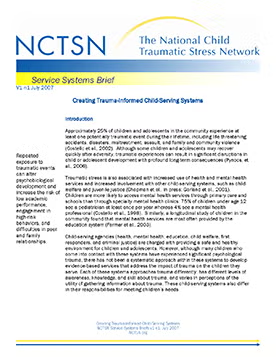1 in 4
Girls
1 in 13
Boys
In the U.S. are estimated to experience
child sexual abuse
Source: CDC 2024
1 Billion
Children Globally
Are estimated to experience sexual violence
Source: World Health Organization 2022
For the medical professional:
- Parents/ caregivers who suspect that their child has been abused, often first turn to their primary doctor/ care provider (PCP) for guidance and support. When a physical exam is indicated, there are several options to consider.
- If you feel comfortable conducting the physical exam yourself, then this can be an ideal option for families.
- Should the exam require more specialized expertise and/or evidence collection, the NAC has a Pediatric Sexual Assault Nurse Examiner (Pedi SANE Nurse) on site who can conduct a medical exam. This medical exam is not painful or invasive and provides
an opportunity for the child and family to be linked to other important services and resources.
- This exam diagnoses and treats medical conditions that may be related to sexual abuse, reassures the child about their body, documents any possible physical and forensic findings and facilitates collection of evidence that may be present on the child’s body or clothing. In addition, should the case go to trial, the SANE nurse is then available to provide court testimony.
- Though many providers are accustomed to automatically refer these cases to an emergency department setting, this is not always necessary or even optimal. Once a 51A gets filed, these cases are then funneled to a CAC to facilitate a forensic interview, so it
can often make sense for families to initiate care at a CAC
rather than an ER. - However, should the child require emergent evaluation during times that the SANE is not available and/or treatment of acute injury, you should refer to a hospital setting.
For schools and youth serving agencies:
- Rigorously screen all employees and volunteers by conducting criminal background, Sex Offender Registry and DCF checks;
- Check references; do a google search and/or social media search
of applicants; - Limit one-on-one interactions with adults and children by having
at least two adults present with a child at all times; - Monitor behavior of staff and child with respect to child interactions and potential risk situations;
- Have a clear reporting structure in your organization;
- Inform/educate parents of child abuse reporting policies, encourage them to talk to their kids about their safety, encourage parents to visit the program and make sure parents know who to contact if there are any concerns.
- Create policy within the organization to clearly define how organization responds to reports of abuse which should include state regulations on mandated reporting.
For more statistics on abuse of children, please visit National Children’s Alliance:
How everyone should respond to a disclosure of abuse:
- Stay calm. Hearing that the child has been abused can bring up powerful emotions, but if you become upset, angry, or out of control, this will only make it more difficult for the child to disclose.
- Believe the child, and let the child know that he or she is not
to blame for what happened. - Protect the child by getting him or her away from the abuser
and immediately report the abuse to local authorities. - Reassure the child you will do everything you can to try to
keep them safe. - Don’t make promises you can’t keep (such as saying you won’t
tell anyone about the abuse). - Keep your child informed about what will happen next,
particularly with regard to legal actions. - Get help. In addition to getting medical care to address any physical damage the child may have suffered (including sexually transmitted diseases), it is important that your child have an opportunity to talk with a mental health professional who specializes in child sexual abuse. Non-offending caregivers and family members (siblings) should also get mental health support post-disclosure.



